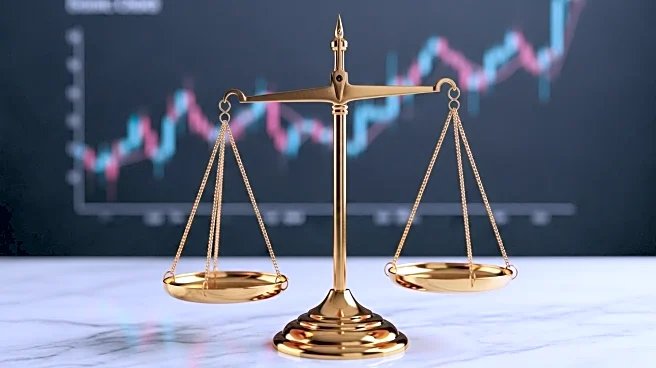What is the story about?
What's Happening?
Stephen Miran, appointed by President Trump to the Federal Reserve's Board of Governors, has called for a significant reduction in the central bank's key interest rate, suggesting it should be lowered to 2.5% from the current 4.1%. Miran's stance diverges sharply from his colleagues on the Fed's rate-setting committee, who have projected a higher rate. His comments, made at the Economic Club of New York, highlight his belief that factors such as declining immigration, increased tariff revenue, and an aging population justify a lower rate. Miran's appointment has been controversial due to his dual role as a top economic advisor to Trump and his unpaid leave from the White House Council of Economic Advisers.
Why It's Important?
Miran's advocacy for steeper rate cuts underscores a significant policy debate within the Federal Reserve regarding the appropriate level of interest rates to support economic growth. His position reflects a more aggressive approach to monetary policy, aiming to stimulate the economy by reducing borrowing costs. This could have implications for inflation, employment, and overall economic stability. Miran's comments also raise questions about the Fed's independence, as his dual role with the Trump administration may influence his policy recommendations. The divergence in views among Fed officials highlights the complexity of balancing economic growth with inflation control.
What's Next?
As Miran's term on the Fed's board expires in January, his influence on monetary policy may diminish unless a successor is appointed. The Fed's rate-setting committee will continue to deliberate on interest rate policy, considering Miran's recommendations alongside other economic indicators. The potential for further rate cuts could impact financial markets, consumer borrowing, and business investment. Stakeholders, including political leaders and economic analysts, will closely monitor the Fed's decisions and their effects on the U.S. economy. Miran's return to the White House after his term may also shape future economic policy discussions.
















